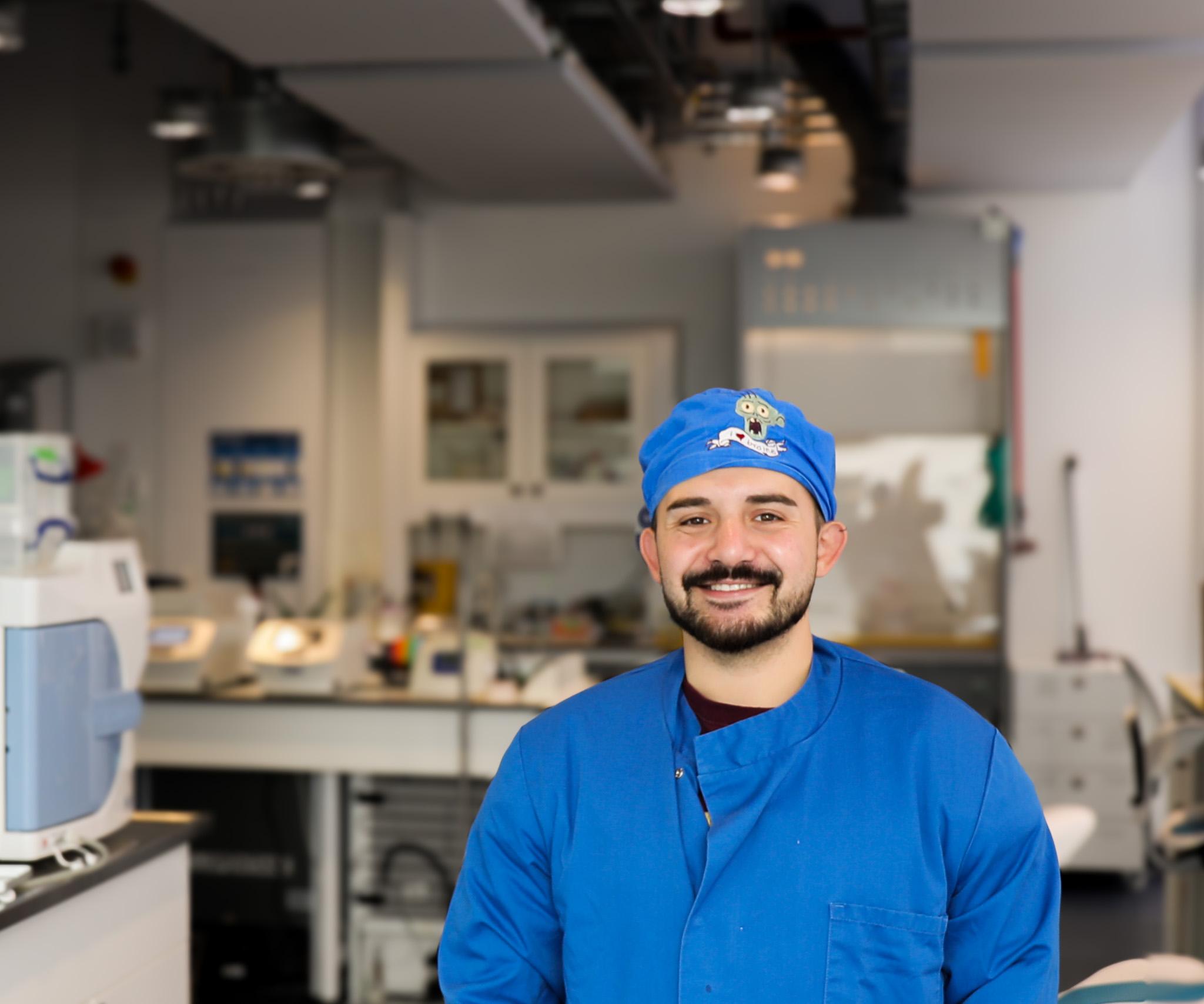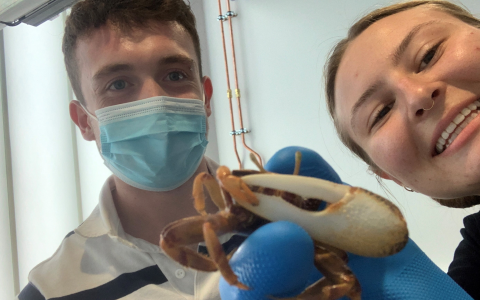
Neuroscience career journeys – Research Technician
Ryan Cini is a Research Technician, working in the Mrsic-Flogel and Behrens Labs. He is researching the grid cells that allow animals to understand their position in space by storing and integrating information about location, distance, and direction.
Can you tell me about your career and what brought you to the SWC?
I have a very choppy travel path. I did an undergraduate degree in zoology, and then after I graduated, I did some conservation work, then I did a master's in marine ecology.
In between my studies, for example in the summers when I was off university, I worked here at the SWC as a temp. So when a job came up, I already knew I liked working here.
Can you describe your typical workday?
Usually, it's very structured. I come in and I prep everything for the experiment for the day ahead. Then I do animal training, and I collect data for analysis and make sure it is available for the researchers. There are also lab meetings or lectures, or maybe I'll be doing things like microscopy.
What is the part you enjoy the most?
I think it's those mini eureka moments of ohh! I finally got this thing working!
Or when perhaps we had a problem at the beginning of setting up an experiment, and then we ironed it out, and then everything was smooth sailing.
What's the biggest challenge?
I think the biggest challenge is a good work-life balance. While I do have a good balance, when you are passionate about something then you want to stay, you want to do the late nights, and you want to keep putting all your energy into it. It is about reminding yourself not to go too far!

What advice would you give to someone thinking about working in science, neuroscience, or working with animals?
It's not easy work, but it's very rewarding. If it's something that you know you are passionate about, or that you think you might want to try, you can test it out. If it’s not for you then you can try something else and there are chances to do whatever you want. I've tested or worked in a few different areas – all related – but I’m trying things out.
I think the biggest thing is knowing that you can take your time. You don’t have to do a master's or a PhD if you don’t want to. Test out the things in a way that feels good and comfortable for you and enjoy the career path that you're creating for yourself.
Things will work out and trust in your instinct. I know it sounds a bit cheesy, but if I didn't do everything that I’ve done, I wouldn’t be in this position now. That’s just part of life.
Just keep asking questions and keep asking to do things. The worst that someone will say is no.
What motivates you?
I love working with animals. A part of it is knowing that I'm working with them, so I know that they're going to be OK.
Also, I have a passion for research - I love learning.
About Ryan
Ryan is a Research Technician who is passionate about exploring the intricate world of animal behaviour and cognition. Ryan holds a background in Zoology (BSc) and a Freshwater and Marine Ecology (MSc) and built a deep curiosity about the neurobiological aspects of behaviour, notably behavioural plasticity.
Ryan became a member of the Mrsic-Flogel Lab and Behrens Lab in October 2023, where he now explores the underlying neurological mechanisms of behaviour as part of both labs' wider projects.


